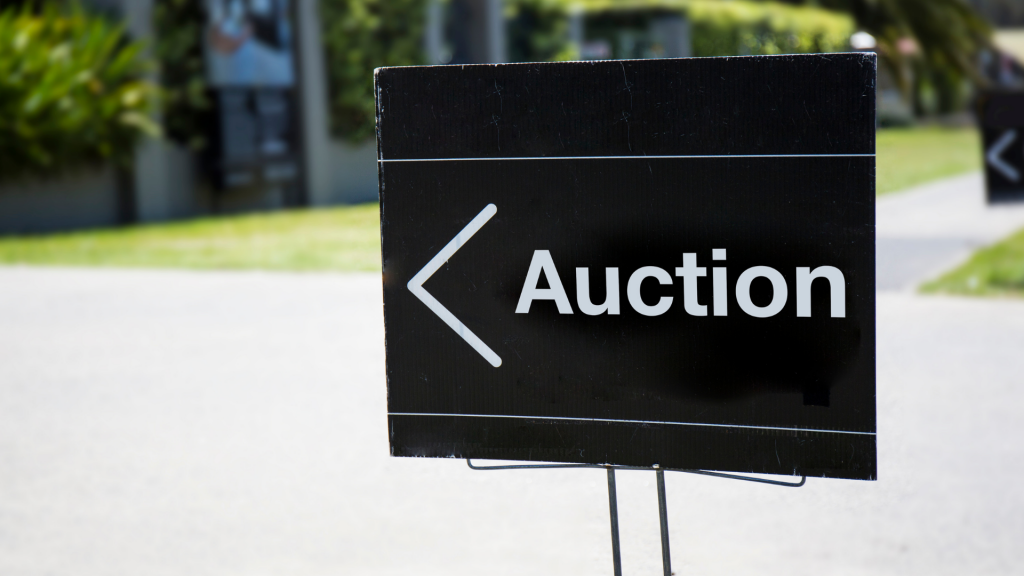The benefits of buying a foreclosed home are largely centered around the affordability aspect, however there are also drawbacks to this which include repairs that need to be made and extra costs that crop up.
Key Points
Buying foreclosed homes is a popular choice for real estate investors who are looking for a good deal, or a fix and flip property. There are both pros and cons to this choice however, so it’s important to make sure you know what you’re getting in, before you choose this route.
The ins and outs of foreclosure
There are 5 type of foreclosures that you can buy, and we’ll outline each of these so that you’re in-the-know before you start thinking about entering the foreclosures arena.
- Pre-foreclosures: This is when a homeowner puts their home up for sale, after the homeowner has been notified that they are in default, and before the mortgage lender auctions the property off. Homeowners have this small window of time to try and sell their home, ahead of foreclosure and to potentially avoid the negative impacts.
- Sherriff’s sale auctions: This type of sale happens when the lender has notified the homeowner of the default, and is now auctioning the property off, in order to get repayment as quickly as possible.
- Short sales: If a borrower is in default or can prove financial hardship, a short sale can happen, which is when a lender is willing to accept less for the property than what is owed on the mortgage. Homes in this category are often worth less than what is still owed on the mortgage.
- Government-owned properties: These are homes that have been purchased with loans that are guaranteed by the likes of the Federal Housing Administration (FHA) or the Department of Veterans Affairs (VA) that have gone into foreclosure. They will then be repossessed by the government and brokers who work at the federal agency will sell the home.
- Bank-owned properties: If a home doesn’t sell at an auction, it is then owned by the bank and becomes a Real Estate Owned (REO) property. These bank owned properties are then sold, often online via websites that list these types of properties specifically.

Pros of buying a foreclosed home
- The most widely known factor and the main reason why many people purchase foreclosed homes is due to the affordability aspect. You can often snap up great deals when you buy a foreclosed home, because banks are usually trying to get rid of the home. Usually, foreclosed homes are sold below market value, and even if they need some work, you can come away with a profit at the end of it.
- Looking at foreclosed homes is a good way to expand your home buying options. It opens up new sources for finding homes outside of the regular methods, and therefore gives you a wider selection. This means that it’s more likely that you’ll find what you’re looking for.
- When buying a foreclosed home, there are less issues cropping up with regards to the title. The bank will often clear the title of any previous issues, and you can start afresh without any problems. In a regular sale, title issues can cause the sale to fall through, so this is a good benefit to going the foreclosure route.
- If you have the time and talents to do your own repairs or renovations, buying a foreclosed home can be a great option. You can save money on having to hire a contractor, and get the great deal, then do all of the repairs yourself. Which adds real equity to the property without costing you a lot and lends itself to a decent profit.
- Housing and Urban Development homes are a good option for those who are looking to buy a foreclosed home to live in. HUD homes that have been financed with the FHA are often sold to people who are going to be living in them, before being offered to investors. So, you’d have less competition here and could snag a good deal quicker.

Cons of buying a foreclosed home
- One of the main drawbacks to purchasing a foreclosed home is that the fact that you’ll be coming up against stiff competition. It’s a popular route for many real estate investors to choose, and they’re usually armed with cash and ready to make a purchase on the spot. So, you won’t be the only one interested in the property, and more often than not, someone else will walk away with a home that you were interested in.
- A major risk on foreclosed home buying is that there can be extra costs incurred easily. For example, you won’t know whether there is a lien on the home from previous owners who haven’t paid their property taxes, or from any contractors who had done work on the property. If you buy the property on auction, you won’t be able to do an inspection either, so there could be a host of extra costs incurred.
- The condition of the home often isn’t disclosed, as the bank isn’t required to inform buyers of any defects with the home and are selling the house “as is”. So, it’s important to do your research on the property before you think about making an offer. The risk is that you’ll get a home that needs a lot of work, which you hadn’t budgeted for. It’s also a good idea to know which repairs and renovations are absolutely necessary, so that when you’re faced with a property that needs work, you’ll know what to do.
- There is a time delay factor when buying foreclosed homes that buyers don’t always know about. This is an important factor to consider, because if there are any complications with the property, this can lead to lots of paperwork and a longer time to process the transaction. Foreclosures often have additional documents which need to be completed ahead of closing, so this can easily make foreclosure sales take longer than a regular sale.
- A foreclosed home isn’t always a good deal. While they may be cheaper initially, it doesn’t mean that it will work out that way for you in the long run. Sometimes these homes need major repairs like new roofs, which can be extremely costly. Other times, the deal just isn’t as good as it looks on paper, once you see the home.

Foreclosed home buying process
Now that you’ve weighed up the pros and cons, you can make a more informed decision about whether buying a foreclosed home is a good idea for you or not. If you choose to go ahead with it, here are the steps you’ll need to take.
Step 1: Get your finances ready
If you want to show that you’re a serious buyer, it’s a good idea to get mortgage pre-approval or a proof of funds letter to make sure that you can indicate that you have the funds available for the transaction. Real estate investors often purchase foreclosed homes with cash, so if you’re going to close the deal, you need to have your ducks in a row and show that you’re ready to purchase the home. Having mortgage pre-approval or cash available will ensure that you can snap up a good deal right away, when you find one.
Step 2: Do your homework
Either partner with a buyer’s agent or make sure that you do an analysis on home prices in the area. A buyer’s agent will know the market better and have a good understanding of how the process works, so this can be a great benefit to you. However, if you choose to take the journey alone, it’s important to get your head around property values in your area so that you can make more informed decisions about what is a good deal and what isn’t.
Step 3: Get searching
Foreclosures can often be found on the MLS or on real estate listing websites that show properties from the MLS. You can also find foreclosures in your local newspaper, as auctioneers are required to post notices of sheriff’s auctions before they take place. Another avenue is to check with government agencies and government-sponsored enterprises, and of course websites that specialize in home auctions.
There are also a number of real estate websites that you can use to find foreclosure properties. This resource lists the best foreclosure websites currently available.
Step 4: Make your move
Once you’ve found a property that you’re interested in, you can make a competitive offer. Checking out comparable properties in the area is one of the best ways to make sure that your offer is reasonable for the location. This is an important step, so do as much research as you can. If you’re using a buyer’s agent, they will be able to help you here with their professional market insight. Make sure to factor in the fact that the home may need repairs and prepare for extra costs when you’re making your offer.
Next steps…
Now that you know the ins and out of foreclosures and what the pros and cons of buying a foreclosed home are, you can decide if this is the right step for you on your real estate investing journey. If you decide to go ahead, make sure that you’re well acquainted with the process and the real estate market in your area.



